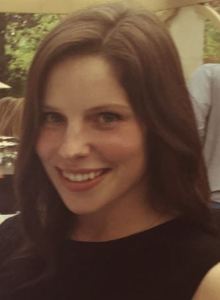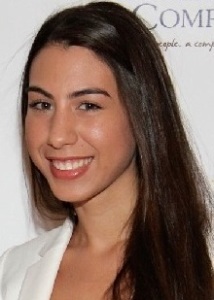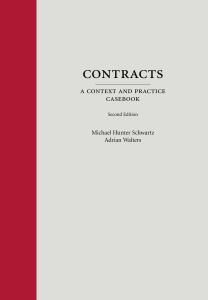OK folks, I know it’s been a while. I’ve been busy this past year with teaching and writing projects. This post is by current Chicago-Kent 3L student, Erica Burgos, who has contributed to the blog before. It’s clear to me reading it that we need to create and model pathways for all law students as early in law school as we can and continue to support students in making adjustments. It is quite normal to feel all at sea at first in any new endeavour. But the feeling should not persist! AW.
Eighteen months ago, I had already completed the dreaded OCI process. For those of you, who like myself had no clue what that was prior to law school, OCI means “On Campus Interviews”. I applied to law school thinking that I had some idea as to what area I wanted to practice. I thought maybe I’d be a real estate attorney, because I had already worked in real estate. I also thought that being a litigator could be fun and I would probably be good at it because I was great at arguing.
So I applied to law school, got accepted, and jumped head first into my first year of law school. I’d been out of the school groove for some time, having worked about 5 years post graduation, but I figured it was just like riding a bike. What I learned was, IT IS MOST CERTAINLY NOT LIKE RIDING A BIKE. It is like being dropped off in the middle of a bustling city in a foreign country. You don’t speak the language, and yet everyone looks at you like you should because you chose to be there. You try to navigate and you think you can manage because you’ve managed to survive the last 20 years as a functioning human being in your own country except you realize that most of the skills you possess don’t really help you in this new place. So, naturally, you begin to panic. Maybe you cry, or drink, or even feel like giving up. You pass out from exhaustion a few times but then eventually, you realize that you’ve started to pick up a few things. You understand a few more words, you can ask for directions, and you’re able to get some food so you know you’ll survive. And just when everything seems like it’s getting a little better, you realize that if you plan to stay in this country, you need to find a job. And then the panic sets in again.
At this point in law school, you know you’ve learned a few things but if you’re anything like me, I still wasn’t sure what area I wanted to practice and I recognized I had very little idea on how to go about looking for a job. Toward the end of my first semester and into the spring semester of 1L year, I began hearing people talk about “OCI” but I really didn’t understand it. What I didn’t realize is how important first semester grades were to the process and I didn’t realize how much of your career is based on it. Obviously, I can’t begin to speak about what it’s like for everyone else; however, because I knew I wanted to work for a larger firm, I needed to participate in OCI.
Fast-forward through 2L year and there I was, about to start my summer job. I had placed tremendous pressure on myself to do well because there was an opportunity to secure a full-time offer from this firm after law school. I expected it to be a lot of work but after successfully getting through another year of law school and having already worked part time as a law clerk, I felt confident. What I didn’t expect was to feel so lost. I know that there are many students who loved their summer jobs. They felt like they rocked it and made tons of connections. And while now I appreciate my summer associateship and the firm that I’ll be working for next year, I admit that I struggled for the first few weeks. For most of my summer, I thought I was the only one who doubted the work I was doing, doubted how relatable I was to the other attorneys at my firm, and even doubted if I wanted to be a lawyer. I found out later that many of my law school friends felt that same sense of uneasiness and doubt.
I’m here to say that doubting yourself and feeling terrified is entirely normal. But those fears don’t necessarily reflect reality. What I’ve come to realize looking back on my last 2 years of law school, is that we are constantly lying to ourselves. We are continually allowing negative thoughts and feelings to creep in and tell us we are not good enough. That we are not smart enough, that we’ll never really fit in, and that we’ll never get the job. And while it is true that we all start out as new lawyers knowing very little about the law, it’s because we are green and inexperienced, not because we are incapable and unworthy.
While it’s great that some of our peers already know the area of law they want to practice, it’s also true that many of us don’t. And that’s okay. It’s also true that even when you think you have an idea; many times your work experience reveals another practice area you’ve grown to prefer. What I’ve had to learn throughout my summer associate experience, and law school thus far, is that I have to get comfortable being uncomfortable. The law is constantly changing and evolving. Partners and senior associates still don’t know everything about the law; that’s why they hire clerks to do research. You have to get comfortable feeling like you don’t know the answer, comfortable feeling a bit lost in your quest to find that answer, and comfortable knowing that you are not a bad student or lawyer when you make a mistake. It’s the only way we can survive this practice and become better attorneys. We can’t convince others we should be in this profession if we can’t first convince ourselves that we are good enough and smart enough to be here.



